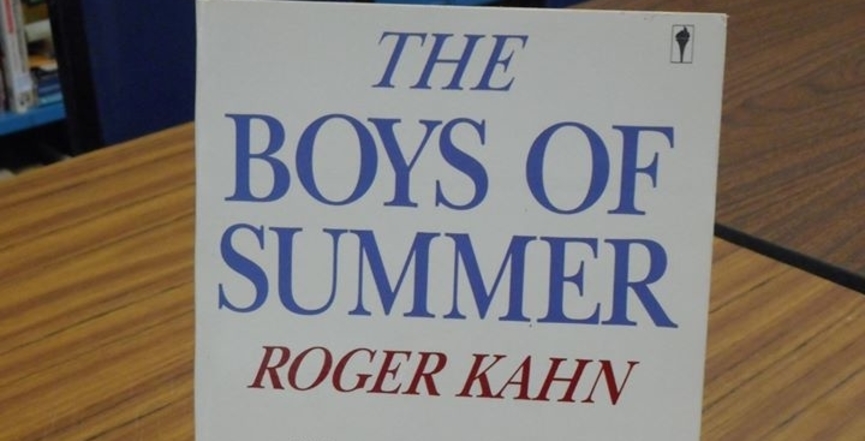It feels odd, though perhaps only to me, that Canada lost a sportswriter who also covered more “serious” areas, and wrote books — Christie Blatchford — the same week Roger Kahn died, who could be described similarly and wrote, among much else, The Boys of Summer, about the Brooklyn Dodgers of the Jackie Robinson years. Roger was 92, Christie just 68.
In the mid-1960s I was doing an MA in religion at Columbia and studying at a New York rabbinical seminary when a prof asked if I’d like to help a journalist he knew with his first book, about American Jews.
I’d had writing dreams before becoming captivated by theology and faith, so I signed on with Roger Kahn. He’d been a baseball reporter who wanted to branch out. But he felt uncomfortable with the religious component of his topic. My job was interviewing religious figures and typing up the results. To help, he gave me a brief course.
It included tips like: Everything important gets said when you’re at the door.
He’d occasionally rescue me from the student ghetto around Columbia and take me downtown to exotic press conferences and events, winding up at Toots Shor’s, where Sinatra and DiMaggio sometimes materialized. (“I haven’t gone anywhere,” complained DiMaggio, about the line in, “Mrs. Robinson.”)
I was stuck then in a life I didn’t like but felt powerless to escape. Roger helped me feel other fates were possible. When The Passionate People appeared, he acknowledged me and said, “I look forward to his own books.” For me he was Roger the Writer, though for most he was Roger the Dodger.
We’d skate in Central Park with his son from his first marriage, Gordon, who announced Roger’s death last week. I was Gordon’s big Canadian friend who skated competently. At birthday parties when they rented a hockey rink, it’d be me and the kids against the adults. He revived my love for sports, which had gone fallow when I got religion.
For his next book, on Columbia’s campus revolt, we sat in a Broadway bar while I tried explaining the Marxist thought of Herbert Marcuse, whom I’d studied with as an undergrad. He needed to know what “the kids” were drawn to.
Neither book was commercially successful. Then came The Boys of Summer. He said the marketing geniuses disliked the title for sounding gay. It was also a bookish book on baseball. The first section was “Lines on the Transpontine Madness,” about hailing from Brooklyn. His mother was an English teacher who sometimes sniffed at stuff like sports or journalism and his writing often seemed in dialogue with that attitude. What made the book work, he said, was they were all the same age when he covered the team.
He was enduringly passionate himself. We had scraps but always reconciled. He said a border official once demanded to know his political views and he snorted, “liberal.” Later he kicked himself for not saying, “socialist.”
We had less contact when I came home and began writing. I ran into him in Banff when I was at the Arts Centre. He’d brought Gordon to Glen Sather’s hockey school there. He lugged a bottle of scotch to my room that night. (In New York, he’d tutored me in scotch.) The phone would ring and he’d say, “Guess who threw out the first pitch for the Blue Jays yesterday?”
Ten years ago, he said he’d be speaking at the Canadian Baseball Hall of Fame in St. Mary’s, Ontario. I couldn’t attend but suggested meeting in Niagara Falls on his way back. I took my son, 11, out of school for it.
We had lunch, cantilevered over the falls. He talked about his lifelong project of constructing an all-time, all-star Jewish baseball team, which he’d expanded to a handsome Jewish team and an ugly one. Combining his passions.
He also described a pickup ball game in late middle age where he’d played third base in some vacation locale, maybe Martha’s Vineyard. He’d dove for a hot shot to his left, snagged it, and threw out the runner. He said a former pro ballplayer who happened to be participating, yelled, “Major league play! Major League play!” I never heard him happier.



